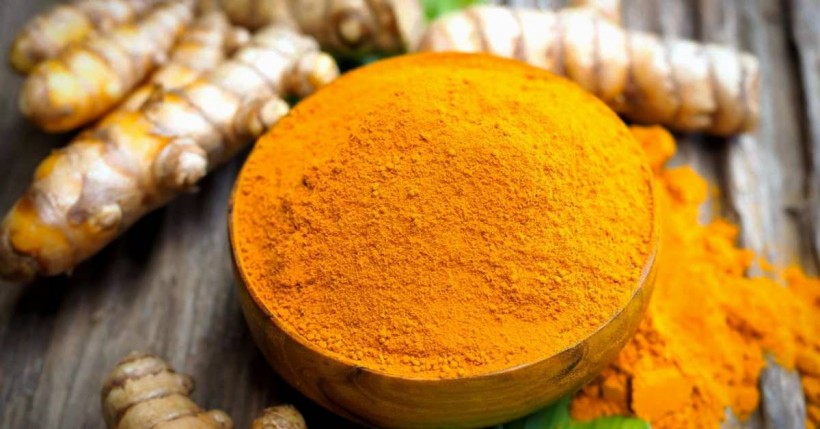Turmeric And Ginger Benefits, Side Effects, Dosage And Drug Interactions
Warning: Undefined variable $post in /home/dietofli/public_html/wp-content/plugins/code-snippets/php/snippet-ops.php(584) : eval()'d code on line 3
Warning: Attempt to read property "ID" on null in /home/dietofli/public_html/wp-content/plugins/code-snippets/php/snippet-ops.php(584) : eval()'d code on line 3
The estimated reading time is 10 minutes
Warning: Undefined variable $post in /home/dietofli/public_html/wp-content/plugins/oxygen/component-framework/components/classes/code-block.class.php(115) : eval()'d code on line 3
Warning: Attempt to read property "ID" on null in /home/dietofli/public_html/wp-content/plugins/oxygen/component-framework/components/classes/code-block.class.php(115) : eval()'d code on line 3

Ginger and Turmeric make quite a powerful culinary pair. Consumed for centuries and used as medicinal herbs in China and India, they spread to Europe and the United States and became a household staple for many.
They earned a reputation for being super healthy and are one of the most extensively studied herbs in herbal medicine.
They both have been consumed to treat morning sickness, like pain relievers, and to boost the immune system. (1) (2)
Turmeric and Ginger Benefits
They are both flowering plants, and they grow beautiful flowers before they are harvested. They are both rhizomes or root stalks and are used mainly for pain relief.
Both, Turmeric and Ginger belong to the family Zingiberaceae, along with cardamon. They are both linked to Ayurveda practices. Turmeric is used to reduce and expel phlegm and kapha imbalance, while ginger is used for treating morning sickness and nausea. (3)
Anti-inflammatory And Anti-bacterial Properties
Turmeric’s compound called curcumin is widely known for its anti-inflammatory capabilities and it is very much commercialized. It can aid in treating and preventing many chronic conditions. (4)
Ginger, on the other hand, is also known for its anti-inflammatory properties and for improving blood circulation. Ginger is carminative, a herbal remedy for reducing and preventing gas formation and alleviating bloating. (5)
Ginger and Turmeric – Complementary Ingredients That Can Be Taken Together
They make a perfect and complimentary cooking and medicinal pair. In fact, they are both part of several types of curry powders. They give additional flavor to many stews, curries, smoothies, and juices. Turmeric has a milder taste and it can be used in higher doses compared to ginger, which has a strong, pungent taste.
Ginger Turmeric Tea
As mentioned, Ginger and Turmeric are complementary and make a nice medicinal pair and this combination is a great supplement to support the healing of your body.
This tea can easily become your lifestyle and it is a delicious drink, having in mind the strong ginger taste. You can make it in higher doses and chill it in your fridge, and served it as iced tea.
This tea is prepared in seconds and it comes with numerous health benefits as:
- Both have impressive anti-inflammatory benefits, especially when tested on rheumatoid arthritis (6)
- Both can prevent cancer as they block the formation of carcinogens and increase protective compounds known as antioxidants (7)
- Ginger has shown to be effective for treating nausea and vomiting in pregnancy and for cancer patients who suffer from this major adverse effect of chemotherapy (8)
- Both are scientifically-backed up as great immunity boosters and this tea is great to support you when the flu season comes around when you are feeling you are getting a cold. (9)
- Both are good for your heart health as ginger improves blood circulation, lower blood pressure, and reduce the cholesterol levels that protect your heart (10)
- The tea can be beneficial for weight loss as well
- Boost immunity and fights against infections
How To Prepare It?
This healing tonic is more a tisane than a tea. It is a great comforting tea for winter nights, but you can drink it no matter the season and this elixir will soon become part of your daily diet menu.
You only need five ingredients to make this tea:
- ½ a lemon, chopped or sliced, rind included
- 1tablesppon ground ginger (½ teaspoon of ginger powder)
- 1 teaspoon ground turmeric ( ½ teaspoon of turmeric powder)
- 1 big cinnamon stick
- 2 tbsp honey or maple syrup (more or less to taste)
Instructions:
- Bring to boil 3 cups of water on high heat in a saucepan
- Reduce the heat
- Add 1 tbsp. grated ginger, the cinnamon stick, and 1 tsp. ground turmeric and simmer for 5 to 10 minutes.
- When simmered, add the chopped lemon or put a lemon juice
- Put the honey or the maple syrup and stir it
- Strain in a glass jar
- Drink it as a hot drink or leave it in the fridge and drink it as an iced tea the next day
Is It Good To Take Ginger And Turmeric Every Day?
Turmeric and ginger are considered to be very healthy and therefore are recommended to be taken every day. You can swap your usual cup of coffee with a nice warming ginger turmeric tea. Still, drinking anything in high doses can be harmful and one cup per day of this tea is sufficient to cover your daily needs.
It is not advisable to drink it if you take medications for:
- Diabetes
- Blood thinners
- Blood pressure
In addition, if you drink more than one cup per day, it may cause heartburn, gas, upset stomach, and burning in the mouth. If you take it as a medicine, you should speak to a health provider to find out what type of dose you need for your health condition.
Ginger Side Effects
Ginger is safe to be consumed, but if taken in doses higher than 5 to 6 g per day may cause some side effects as follows:
- Heartburn (burning sensation in your chest) as in one 2020 study, found that it can cause heartburn as an adverse side effect if taken in high doses ( more than 5 g per day) (11)
- Diarrhea, gas, and abdominal pain but if especially taken in high doses (12)
- Heart condition – high doses may worsen some heart conditions and cause cardiac arrhythmias
Ginger Side Effects For Underweight People, People With Hemophilia And Pregnant Women
Effects of ginger are quite rare, but it is not suggested to be taken in high doses (more than 5 g per day), and in some cases, it may cause serious side effects for:
Underweight people
Ginger is known to help people with weight loss and people who have diabetes. Therefore, undernourished or underweight people should avoid consuming ginger as it may lead to hair loss, menstrual anomaly, and decreasing weight even more.
Pregnant women
It may cause premature contractions and increase the risk of bleeding. It may also prevent assimilation of some nutrients and dietary iron and maybe a concern if you take some other medications during your pregnancy.
However, you can use it in small quantities, as it may ease the morning nausea, but you should always consult your health provider before consuming it.
People with hemophilia
Hemophilia is a rare blood genetic disorder where the blood doesn’t clot, and it can lead to severe bleeding during injuries. You should avoid taking ginger if you suffer from this health condition, as it may worsen your bleeding problems. (13)
This is because it inhibits platelet thromboxane. This is a substance that platelets make that causes the blood to clot and constricts the blood vessels.
What Medications Should Not Be Taken With Ginger?
Ginger may interact with certain prescribed medications and if you take any of these medications, you should consult your health provider before consuming this healthy herb.
1. Antidiabetic medications such as ginger may lower blood sugar levels abnormally low, and you may develop hypoglycemia ( a condition that includes dizziness, difficulty talking, hunger, sweating, and loss of consciousness). You should talk to your doctor if you take:
- Insulin,
- Metformin,
- Glyburide
- Rosiglitazone
2. Medication for blood pressure as it may increase the lower blood pressure and cause irregular heartbeat.
- Medication for blood pressure, Cyclosporine may interact with ginger and may increase its side effects
3. Blood thinners may increase the bleeding and speak to your health provider if you take:
- Clopidogrel (Plavix)
- Aspirin
- Warfarin
- Nifedipine
4. It may interact with some herbal medications that have anticoagulant effects and may cause excessive bleeding. These herbs include:
- Turmeric
- Red clover
- Ginkgo biloba
- Panax ginseng
- Garlic
5. Other medications that might interact with ginger are:
- Naproxen (Anaprox, Naprosyn)
- Diclofenac (Voltaren, Cataflam)
- Ibuprofen (Advil, Motrin, others)
- Heparin
- Dalteparin (Fragmin)
- Enoxaparin (Lovenox)
How Much Ginger Can Be Taken Daily?
Ginger can be taken fresh, dried, or prepared in a drink (tea).
The amount to be taken on a daily basis depends on the reason you are consuming it. If you are taking it orally as a medicine, you should always follow the labeling and prescribed dosage.
There is no specific prescribed dosing, but in most of the clinical trials, patients took between 250 mg and 1 g ginger powder 4 times per day in capsule form. For pregnant women, who suffer from nausea and vomiting, the clinical trials found that they should consume 250 mg 4 times per day. (14)
Some studies conducted found that when used for reducing joint pain caused by arthritis, it can be taken three times per day in a dose of 2 gr. (15)
Some consuming techniques have not been studied, such as rubbing the painful joint with ginger oil or inhaling the ginger water.
Turmeric Side Effects
Turmeric and commercialized curcumin products are safe to be taken in daily doses or applied to your skin if used in recommended dosage.
Still, it may cause serious side effects in some people, and they should avoid it.
Certain people should take it with big caution:
1. People with diabetes as it may lower their blood sugar levels and provoke a low blood sugar or hypoglycemia and they should be careful when they consume curcumin. (16)
2. People with anemia as it inhibits iron absorption and reduces iron availability (17)
3. People with gall bladder issues as it is capable of contracting the gall bladder and may increase the bile secretion in the body. (18)
4. People with kidney stones as it is rich with oxalate that binds with calcium and provokes kidney stones formation (19)
5. People who take blood-thinning medications as it may increase the bleeding and make the medications less effective.
These medications include:
- Heparin
- Diclofenac (Cataflam, Voltaren)
- Coumadin (Warfarin)
- Plavix (Clopidogrel)
- Fragmin (Dalteparin)
- Advil, Motrin and others (Ibuprofen)
- Anaprox, Naprosyn and others (Naproxen)
- Enoxaparin (Lovenox)
- Aspirin
6. Pregnant women should avoid taking Turmeric and curcumin during pregnancies in high doses and as supplements as they can lead to miscarriages. They can still enjoy their favorite Indian or Thai curry dish from time to time, but not very often. This is not scientifically backed up,
How Much Turmeric Can Be Taken Daily?
You can consume it regularly in your food on a daily basis, but the problem is when you take it as a supplement. The supplement is composed of almost 95 % curcumin, while the spice contains only 3 % of curcumin.
The World Health Organization (WHO) has determined an acceptable curcumin daily intake of 1.4 mg per pound (0–3 mg/kg) of body weight.
Still, if you want to take it as a supplement, you should talk to your doctor before taking it.
Conclusion:
- Ginger and Turmeric make quite a powerful culinary and medicinal pair. They earned a reputation for being super healthy and are one of the most extensively studied herbs in herbal medicine.
- They both have anti-inflammatory properties and can be taken on a daily basis. You can swap your usual cup of coffee with a nice warming ginger turmeric tea. Still, drinking anything in high doses can be harmful and one cup per day of this tea is sufficient to cover your daily needs.
- Ginger is safe to be consumed, but if taken in doses higher than 5 to 6 mg per day may cause some side effects. It should be also avoided by underweight people, pregnant women, and people with hemophilia. Ginger may interact with certain prescribed medications.
- Turmeric and commercialized curcumin products are safe to be taken in daily doses or applied to your skin if used in recommended dosage.
- Still, it may cause serious side effects in some people, and they should avoid it. Certain people should take it with big caution: people with diabetes, people with anemia, with gall bladder issues, kidney stones, people who take blood-thinning medications and pregnant women.














